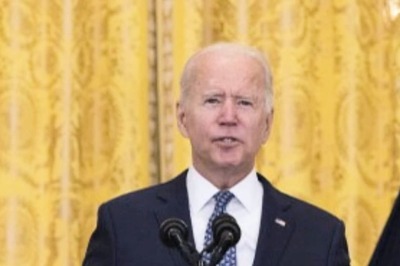
views
CAIRO: In April 2015, President Omar al-Bashir traveled to the heart of Sudan's conflict-ravaged Darfur region to congratulate one of his hand-picked commanders on a recent victory over rebels.
Gen. Mohammed Hamdan Dagalo, better known as Hemedti, had led the so-called Rapid Support Forces on a series of counterinsurgency campaigns in Darfur and other restive provinces. The paramilitary force grew out of the notorious Janjaweed militias, and rights groups say forces under his command used many of the militias' brutal tactics.
"I signed the list of promotions that I received from you without even looking at it," al-Bashir told a cheering crowd, addressing Dagalo, as he stood atop a Land Cruiser in the sweltering heat, according to a contemporary account of the rally.
Four years later, al-Bashir is imprisoned in the capital, Khartoum, and Hemedti, who comes from a camel-trading family in a remote province, is the second most powerful man in Sudan.
He is the deputy head of the military council that assumed power after removing al-Bashir from office in April, following four months of mass protests. At 44, he is also the youngest member of the council. He says he refused orders from al-Bashir to fire on the protesters, and he praised them as recently as last weekend, saying "we want the democracy they are talking about."
Many see him as an ally against the Islamic movement that orchestrated al-Bashir's 1989 coup and underpinned his regime. Hemedti has supplied ground forces to the Saudi-led coalition fighting Iran-aligned rebels in Yemen and can count on the support of the Saudis, the United Arab Emirates and Egypt, which also hope to sideline the Islamists.
But his meteoric rise is closely linked to the ongoing conflict in his native Darfur, where his forces are accused of continuing the scorched-earth campaign against rebels that al-Bashir launched in 2003, and for which the president was indicted for war crimes and genocide by the International Criminal Court.
Hemedti, who declined AP requests for an interview, has not been implicated in the atrocities carried out in Darfur in 2003 and 2004, when the government-backed Janjaweed rampaged across the region, torching villages and killing and raping ethnic Africans.
Some 300,000 people were killed and 2.7 million were forcibly displaced in the early years of the conflict, before the violence gradually declined.



















Comments
0 comment